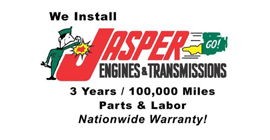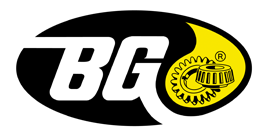Automotive Tips from Westside Automotive: Timing Belt Overview
Posted April 26, 2020 1:23 AMIn your engine, valves over each combustion chamber open to allow fresh air in, close during the combustion event, and then other valves open to let out the exhaust. All of this happens over and over thousands of times a minute when you are driving around Houston. The timing belt’s important job is to make sure that all of this happens as it should – at precisely the right time. If the timing is off, your engine won’t run efficiently or maybe not at all – so a good timing belt is important. If it should break, you could end up at Westside Automotive with expensive engine damage.
Ask your friendly and professional Westside Automotive service advisor when your timing belt is scheduled for replacement.
Give us a call.
Westside Automotive
12510 Oxford Park Dr.
Houston, TX 77082
281-589-8984
http://www.houstonwestsideautomotive.com
Considering an Alternative Fuel Vehicle in Houston?
Posted April 19, 2020 12:17 PM
There is a clear and vocal demand in Houston and nationally for a reduction in air pollution and our dependence on fossil fuels. This is what is driving the TX market for alternative fuel vehicles. There are a number of these vehicles on Houston area roads today, and many more being developed. Yet each of these vehicles has its own advantages and disadvantages. Houston auto owners should learn what these advantages and disadvantages are before running out and purchasing one of these alternative fuel vehicles at your nearest Houston dealership.
Houston drivers should carefully research the vehicle care before buying an alternative fuel vehicle, as it may or may not coincide with the standards for gasoline vehicles. You should look at costs as well; these vehicles may help save our environment here in Houston, but that might not represent a savings to your wallet. You'll need to decide what you can afford and what will work for your lifestyle. Also, your choice of vehicle may be affected by what fuels are available in your area. Switching to an alternative fuel vehicle is not a bad decision, but it should be a carefully considered one.
Flex Fuel Vehicles
Flex fuel vehicles can run on gasoline or on a combination of 85% ethanol and 15% gasoline. Because of the 85% ethanol content, this fuel is commonly called E85 in TX.
Ethanol is made from corn. So flex fuel vehicles lessen our dependency on fossil fuels. But they also raise the price of corn, which is a basic foodstuff in some areas of the world. Whether replacing fossil fuels with corn is a good idea is hotly contested right now.
One piece of Westside Automotive auto advice before we move on: do not put E85 into your vehicle unless it has an engine designed for flex fuels. Because of the high ethanol content in E85, engines need special seals and gaskets to function properly on this fuel. Running an ordinary engine with E85 can lead to gas leaks and fires.
Diesel
Diesel engines are nothing new on TX freeways, and many get great fuel economy. Diesel fuel can now be made from vegetable oil and other renewable sources. A diesel fuel made from algae will soon be on the market in the Houston area.
Natural Gas
Natural gas is less expensive than gasoline in Houston and burns more cleanly. Also, gasoline engines can be adapted to run on compressed natural gas, and many natural gas vehicles are already on Houston roads. You can even install a special pump in your home gas line to use to fuel your vehicle. If you are interested in converting your gasoline engine to run on CNG in Houston, ask your Westside Automotive service advisor about it.
On the other hand, an engine running on natural gas is not as powerful as one running on gasoline. Also, the tank you need to store natural gas is large—it takes up nearly the entire trunk of your car. Further, refueling stations are still few and far between in some TX areas, or even unavailable in many parts of the country.
Electric Vehicles
Electric vehicles were all the rage in TX some years ago. But their limitations were quickly realized by Houston auto owners. These vehicles won't come into their own until we find ways to improve their batteries. Currently, many of these cars have a short range before their power runs out and can only be realistically used close to home. However, they are easy to recharge since they can be plugged in at home, and there are many researchers working on improving the battery technology in these vehicles. They may yet be the vehicles of the future.
Hybrids
Hybrids have been among the most successful alternative fuel vehicles here in Houston and throughout the county. A hybrid gets its name because it has both a gas or diesel engine and an electric motor.
There are two types of hybrids. The full-hybrid relies on the electric motor for power, but the gas (or diesel) engine generates power for the battery. Thus, while still consuming fossil fuels, it uses less of them than a standard vehicle and also reduces harmful pollutants. Also, it overcomes the range problem of the strictly electric vehicle.
In a mild hybrid, the electric motor assists the gas or diesel engine in powering the vehicle. Thus, it uses more gasoline or diesel than full hybrids and has higher emissions. But mild hybrids are available in larger body models like full-size pickups and SUV's.
A Note of Caution about Hybrid and Electric Vehicles
One last note before we leave the subject of alternative fuel vehicles. The battery in an electric or hybrid vehicle is not as tame as the one in a standard vehicle. They carry enough voltage to kill you. These are not do-it-yourself vehicles when it comes to preventive maintenance or car care. Only a trained technician should work under their hoods.
Westside Automotive
12510 Oxford Park Dr.
Houston, TX 77082
281-589-8984
http://www.houstonwestsideautomotive.com
How Your Check Engine Light Works
Posted April 12, 2020 11:04 AM
Have you ever had an experience like this in Houston, TX? You drive through the one of those automatic car washes. When you get to the end, where the dryer is blowing, your Check Engine light starts flashing!
You fear the worst, but within a block or two, the light stops flashing, but stays on. By the next day, the light is off.
You wonder; "What was going on?" Well, it's actually a good lesson in how the Check Engine light works.
Your air intake system has a sensor that measures how much air is coming through it. When you went under the high-speed dryer, all that air was blasting past the sensor. Your engine computer was saying, there shouldn't be that much air when the engine is just idling. Something's wrong. Whatever's wrong could cause some serious engine damage.
Warning, warning! It flashes the Check Engine light to alert you to take immediate action.
It stopped flashing because once you were out from under the dryer, the airflow returned to normal. Now the engine control computer says the danger is past, but I'm still concerned, I'll keep this light on for now.
Then the Check Engine light goes off in a day or two.
The condition never did recur, so the computer says whatever it was, it's gone now. The danger is past, I'll turn that light off.
Now a flashing Check Engine light is serious. You need to get it into Westside Automotive as soon as possible. But if it stops flashing you can wait a few days, so you have time to see if the problem will clear itself or if you need to get it checked. How does the computer know when to clear itself?
Think of it this way. The engine control computer is the brain that can make adjustments to manage the engine. Things like alter the air-to- fuel mix, spark advance and so on. The computer relies on a series of sensors to get the information it needs to make decisions on what to do.
The computer knows what readings are in a normal range for various conditions. Get out of range, and it logs a trouble code and lights up the Check Engine warning.
The computer will then try to make adjustments if it can. If the computer can't compensate for the problem, the Check Engine light stays on.
The computer logs a trouble code. Some people think the code will tell the technician exactly what's wrong.
Actually, the code will tell the technician what sensor reading is out of parameters. It can't really tell him why, because there could be any number of causes.
Let's say you're feeling hot. You get your heat sensor out – a thermometer – put it under our tongue and in a minute or two you learn that you have a fever of 104 degrees F (40 degrees C).
You know your symptom – a fever – but you don't know what's causing it. Is it the flu, a sinus infection or appendicitis?
You need more information than just that one sensor reading. But it does give you a place to start and narrows down the possible problems.
There are reports on the internet telling you that you can just go down to an auto parts store and get them to read your trouble code or buy a cheap scan tool to do it yourself.
There are two problems with that. First, the computer stores some trouble codes in short term memory and some in permanent memory. Each manufacturer's computer stores generic trouble codes, but they also store codes that are specific to their brand.
A cheap, generic scan tool, like you can buy online or that the auto parts store uses, doesn't have the ability to retrieve long-term storage or manufacturer specific codes. Your Houston, TX, service center has spent a lot of money on high-end scan tools and software to do a deep retrieval of information from your engine control computer.
The second problem is that once you've got the information, do you know what to do with it? For example, a very common trouble code comes up when the reading on the oxygen sensor is out of whack.
So the common solution is for the auto parts store to sell you a new oxygen sensor — which is not cheap — and send you off on your way. Now your oxygen sensor may indeed have been bad and needed replacing. But the error code could have come from any of a dozen of other problems.
How do you know the right solution? Back to the fever analogy, do you need surgery or an aspirin? Leave it to the pros at Westside Automotive. Give us a call and let us help you resolve your check engine light issue.
Westside Automotive
12510 Oxford Park Dr.
Houston, TX 77082
281-589-8984
http://www.houstonwestsideautomotive.com
Talk to Westside Automotive About New Shoes for Your Vehicle
Posted April 5, 2020 11:42 AM
Custom wheels are one way that Houston folks express themselves and personalize their vehicle. But they aren't as cheap and easy as sticking decals on your back window. There are several factors that need to be considered, including cost, the fit of the wheel, modifications that will have to be made to the vehicle, how the new wheels and tires will affect the operation of the vehicle, your driving habits and, of course, the style of the wheels. Most Houston drivers start with the last factor: the style of the wheels. But that should be the last thing we choose.
When considering custom wheels, you should first carefully consider your budget. Some wheels may require adjustments to your vehicle suspension system, brakes, or traction systems. You need to know what you can afford before you start shopping or get your heart set on a particular type of wheel.
There are three basic ways you can change your wheels. First, you choose a wheel that is already the same size as the ones on your vehicle. Second, you can choose larger wheels and third, you can choose smaller wheels. Mounting wheels that are the same size as the ones already on your car sounds easy enough. But even though the wheel may be the same diameter as your current wheels, that doesn't mean it will fit your vehicle. Besides diameter, wheels also have an offset. This is the measurement from the inside edge of the wheel to the point at which it bolts on. If your new wheel does not have the same offset as your current wheels, your vehicle tires can rub on the inside or outside of the wheel well. This can lead to blowouts, uneven tread wear and other mechanical problems.
The tire and wheel professionals in Houston at Westside Automotive on 12510 Oxford Park Dr. can help you select a wheel that has both the correct diameter and offset for your vehicle. Or, if you really want a specific wheel in spite of the offset difference, your technician may be able to install adapters that will make the wheels fit.
Mounting larger wheels is a more involved process. There are several ways of doing this. You can mount larger wheels but keep the overall tire diameter the same. Or you can “supersize” your tire/wheel combo. Mounting larger wheels while maintaining the same overall tire diameter is the easiest way to increase wheel size. You still need to adjust for offset. Generally, this alteration means that your new tires will be wider than the originals, so you will have to install adapters to keep them from rubbing on the wheel wells. Consult your service advisor at Westside Automotive by calling 281-589-8984.
If you want to install larger wheels and increase the overall tire diameter, it is important that the package fits in the wheel well; you may have to do some minor modifications to your suspension. More importantly, you will have to reprogram your vehicle engine's computer to calibrate for the larger tire size. The computer calculates your speed based on the rotation of your tires, so increasing the size of the tires will render it inaccurate. Inaccurate speed calculations can mess up your anti-lock brakes and your stability control systems, as well as your speedometer and odometer.
As you can see, the more modifications you make, the more it becomes important to have your friendly and knowledgeable Westside Automotive tire and wheel professional help you with your car care.
If you really want those “super-sized” tires, great: just factor in the issues listed above, plus you may have to have modifications done to your suspension system.
The larger wheels and tires will add weight to your vehicle. This weight is not held up by the suspension system, so is referred to as “unsprung” weight. Adding unsprung weight affects your car differently than just adding loads inside of your car. Unsprung weight can affect acceleration and braking. Putting large wheels on your vehicle may require an upgraded brake system.
Also, you may not get the performance from your vehicle that you've been used to. It may be sluggish when accelerating or harder to handle when turning. You may also find that the ride is bumpier than it was before. Of course, done right at Westside Automotive, a good wheel job can sometimes improve a vehicle's ride or performance. It just depends on your vehicle, the type of wheels you choose and what you are hoping to accomplish.
Now let's suppose you want smaller wheels on your vehicle. That should be easier, right? Not really. You still have to worry about offset, and it is important that your computer be reprogrammed to account for calibration issues. And you may need adjustments to your suspension system.
Remember your budget? All of these scenarios require that you shell out some money. Perhaps now you can see why it is good auto advice for Houston drivers to make that consideration first, before setting their heart on a specific type of wheel.
Another consideration should always be your driving habits. Do you do a lot of off-roading on the outskirts of Houston? Do you carry heavy loads? Do you tow a trailer on TX roads? All of these factors must be considered when replacing your tires and wheels. Some wheels just may not be up to the work you need them to do.
For example, if you mount large rims on your vehicle, then add low-profile tires to avoid major adjustments to other systems, they won't be able to handle off-roading as well as larger tires. There won't be enough sidewall on the tires to absorb the impact from off-roading. You could end up with dented or broken rims.
At the end of the day, Houston drivers should always put safety ahead of appearance. That's why you shouldn't add custom wheels to your vehicle without consulting with your Westside Automotive tire and wheel professional. Cutting corners when installing custom wheels by not making necessary adjustments to all of the systems impacted by the change can result in dangerous operating conditions as well as repairs down the road.
The friendly and knowledgeable auto professionals at Westside Automotive want to remind Houston drivers of the basics of vehicle safety: preventive maintenance, emergency preparedness and professional repairs. Stay safe, and stay on the road.
Westside Automotive
12510 Oxford Park Dr.
Houston, TX 77082
281-589-8984
http://www.houstonwestsideautomotive.com












